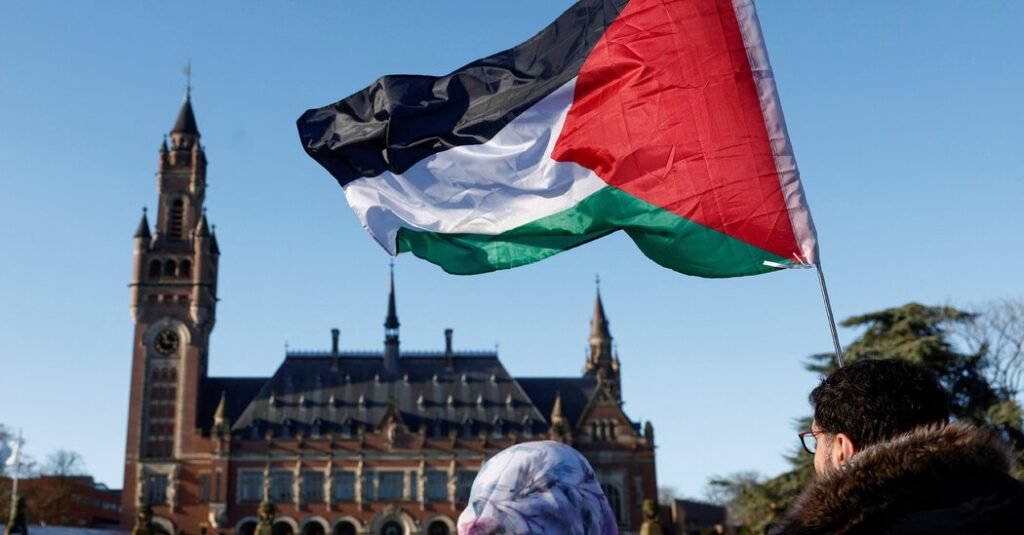The International Court of Justice is due to rule on Friday on South Africa’s request that Israel immediately suspend its military offensive on Gaza. The ruling is a first step in a broader case over whether Israel is committing genocide against Palestinians in the enclave.
The decisions of the court, the highest judicial organ of the United Nations, are binding, but the court has few means of enforcement. However, a ruling against Israel would increase international pressure on Prime Minister Benjamin Netanyahu’s government for war.
Here’s what you need to know about the decision.
What is the case?
This month, the South African government accused Israel at the Hague tribunal of “acts and omissions” of a “genocidal nature” against Palestinians in Gaza. Arguing before a 17-judge panel, South African lawyers said Israeli leaders and lawmakers had communicated in public statements their intent to commit genocide, which would constitute a violation of the UN Genocide Convention, to which Israel is a party.
South Africa offered as evidence the words of Israeli officials, including Defense Minister Yoav Gallant, who said in October that Israel would impose a full siege on the territory because it was fighting “human animals”. A South African lawyer showed the court a video of Israeli troops dancing and singing that “there are no innocent civilians”, arguing that it showed the soldiers had understood the “motivated words” of their leaders.
What is Israel’s defense?
Israel has categorically denied the accusation. The country’s lawyers told the court that the Israeli military had worked to preserve civilian life by giving non-combatants two weeks to leave northern Gaza before invading in late October. They also say that after freezing aid deliveries to Gaza at the start of the war, they have since allowed it to be delivered daily.
Israel’s lawyers say some inflammatory statements by Israeli leaders were made by non-executives during the military campaign or taken out of context. Israel has declassified more than 30 secret orders issued by government and military leaders, which it says show Israeli efforts to limit harm to civilians.
What is the significance of the case?
To some extent, the case is a legal reckoning for the war in Gaza, which began when Hamas led an Oct. 7 attack that killed about 1,200 people, mostly civilians, according to Israeli officials, and took about 240 others hostage. Israel responded with airstrikes and a ground invasion that killed more than 25,000 people in Gaza, according to health authorities there. The United Nations says about 70 percent of the dead are women or children.
Many Israelis see the case as part of a decades-old effort to make the country a pariah and hold it to a higher level of scrutiny than other nations. Israeli leaders have called the case preposterous, arguing that Israel, which was founded after a genocide of the Jews, is fighting a genocidal enemy in Hamas, which has called for Israel’s destruction.
Many Palestinians, however, see the case as a rare opportunity to hold Israel to account. They argue that the United States and other powerful allies have shielded Israel from accountability, including in the UN Security Council.
What might a decision mean?
The court is not expected to rule on the genocide charge for years. The decision expected on Friday is over whether to order “interim measures” that would require Israel to take precautionary measures to ensure that genocide does not occur in the future while the case is pending, and to stop “further serious and irreparable harm » to the Palestinian people.
Because Israel defended itself in court, legal experts say it could be more difficult for it to reject any court orders. But Israel has ignored the court’s findings in the past: In 2004, the court issued a non-binding opinion that an Israeli security barrier inside the occupied West Bank was illegal and should be dismantled. two decades later, the wall and fence system still stands.

